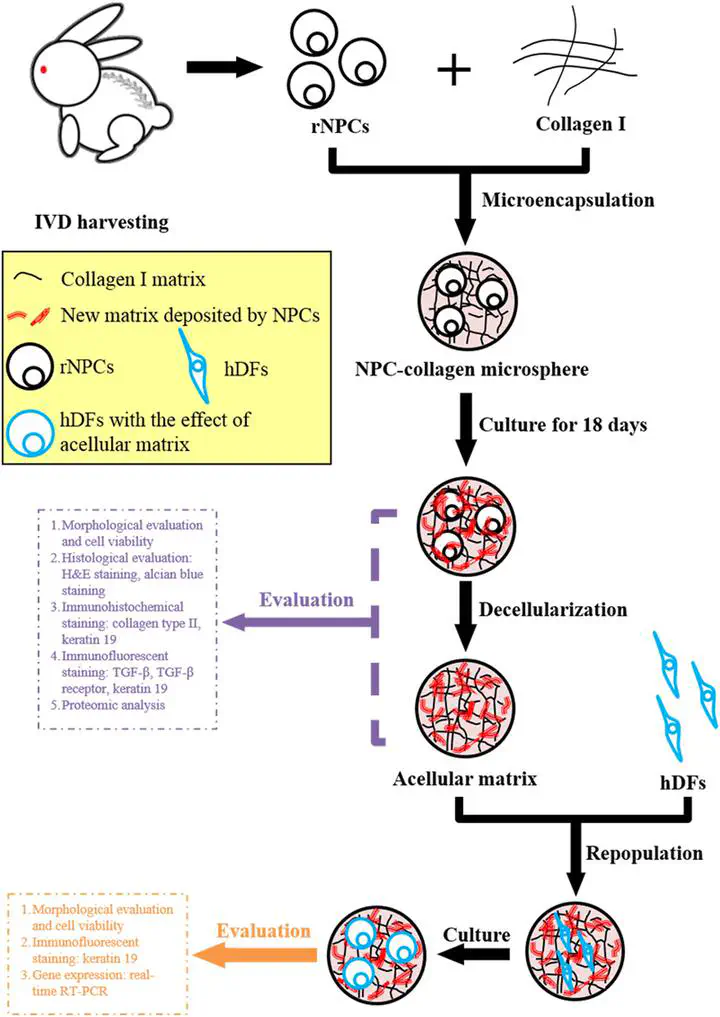New Paper: Proteomic Analysis of Nucleus Pulposus Cell-derived Extracellular Matrix Niche and Its Effect on Phenotypic Alteration of Dermal Fibroblasts

In this study, we use our collagen microsphere system as a 3D in vitro model to study cell niche factors, contributing to future understanding of cellular interactions at the cell-niche interface and rationalized scaffold design for tissue engineering.
Check out the published paper here: https://doi.org/10.1038/s41598-018-19931-9
Abstract
Reconstituting biomimetic matrix niche in vitro and culturing cells at the cell niche interface is necessary to understand the effect and function of the specific matrix niche. Here we attempted to reconstitute a biomimetic extracellular matrix (ECM) niche by culturing nucleus pulposus cells (NPCs) in a collagen microsphere system previously established and allowing them to remodel the template matrix. The reconstituted NPC-derived complex ECM was obtained after decellularization and the composition of such niche was evaluated by proteomic analysis. Results showed that a complex acellular matrix niche consisting of ECM proteins and cytoskeletal proteins by comparing with the template collagen matrix starting material. In order to study the significance of the NPC-derived matrix niche, dermal fibroblasts were repopulated in such niche and the phenotypes of these cells were changed, gene expression of collagen type II and CA12 increased significantly. A biomimetic NPC-derived cell niche consisting of complex ECM can be reconstituted in vitro, and repopulating such matrix niche with fibroblasts resulted in changes in phenotypic markers. This work reports a 3D in vitro model to study cell niche factors, contributing to future understanding of cellular interactions at the cell-niche interface and rationalized scaffold design for tissue engineering.